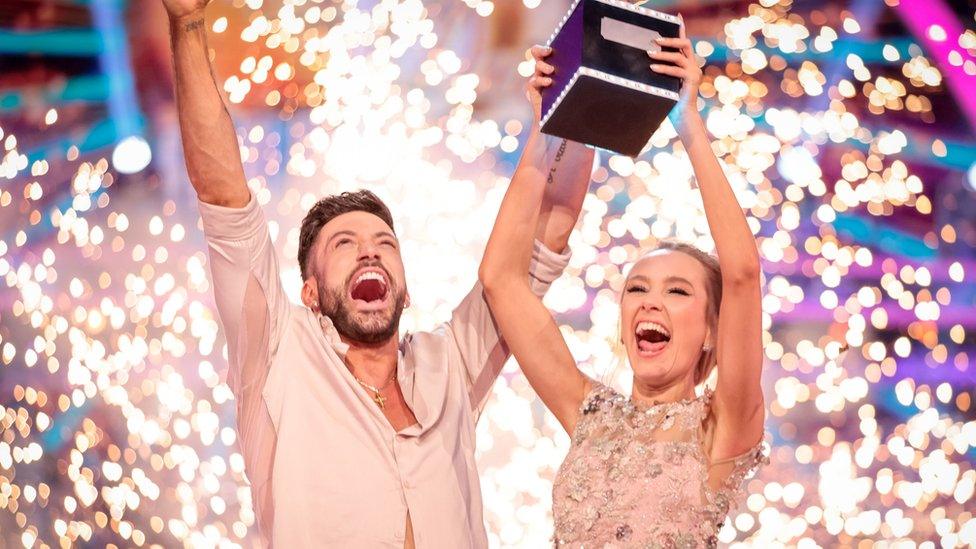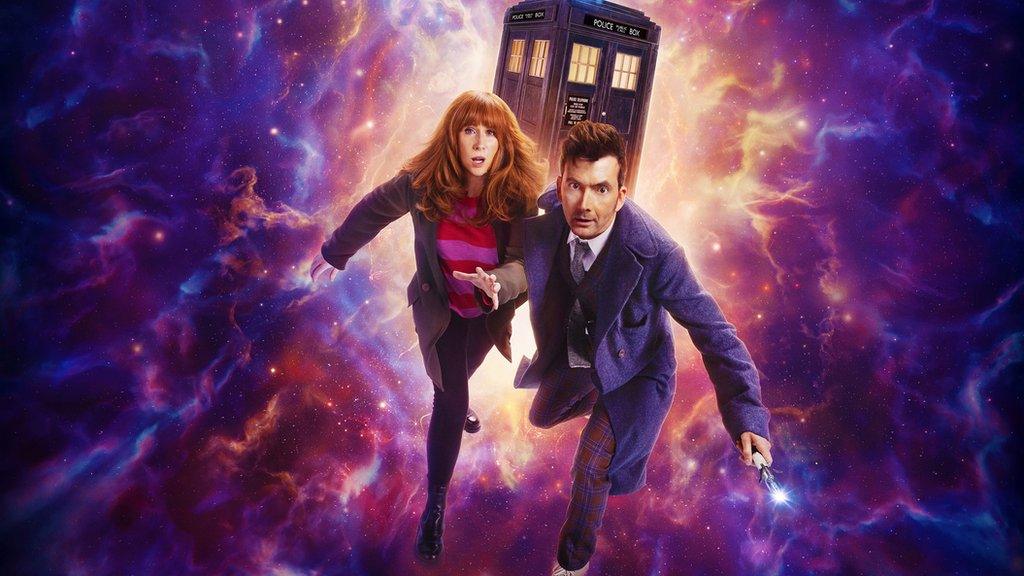BBC to explore how to reform licence fee, director general says
- Published
- comments
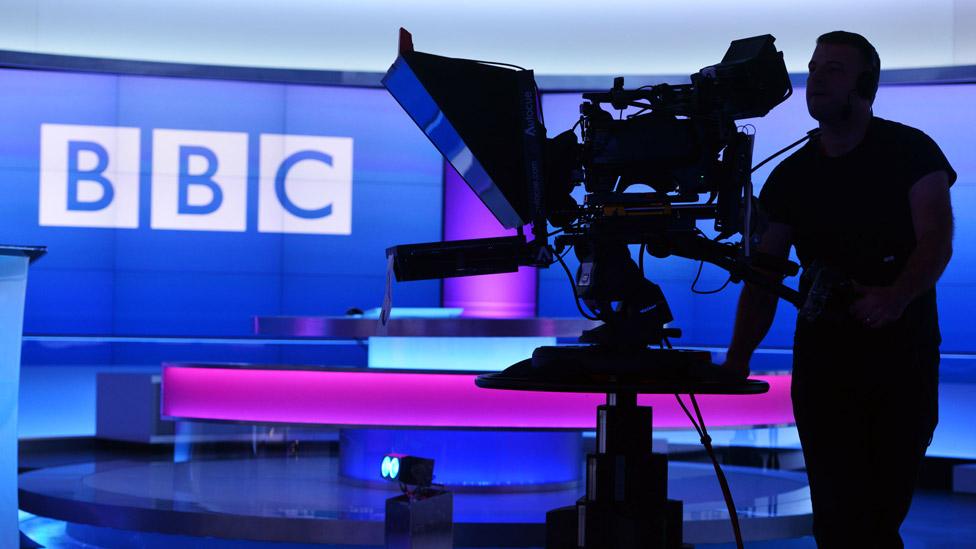
The BBC's director general Tim Davie has announced that the corporation will explore how to reform the licence fee.
Davie said the BBC will look at the licence fee's scope, how progressive it is and how it is enforced.
In a speech on Tuesday, Davie said "it is right to ask fundamental questions about its longevity".
But he added "we should be... cautious about unpicking a multi-genre BBC that leads the market", describing the BBC as a "precious ecosystem".
Speaking of funding, Davie said the BBC's income had effectively fallen by around 30% between 2010 and 2020 and that the annual savings target would now rise by £200m to £700m a year by 2028.
He said that saving would ensure "we can deliver enough impactful content and ensure investment in digital products".
Davie also said the long term funding of the BBC World Service - an international news service available on radio, television and online in English and 40 other languages - ought to be paid for by the government.
The cost of the World Service was paid for by the Foreign Office until 2014. Since then there have been varying levels of grant support from the government, but it is at the moment largely paid for by the licence fee.
"We cannot keep asking UK licence fee payers to invest in it when we face cuts to UK services," he said.
The director general also criticised cuts to the BBC in real terms in recent years, including a two-year freeze on the licence fee.
"To strip money from the BBC during this period has been particularly short-sighted" after "below inflationary settlements have chipped away at our income over many years."
He added that the BBC was still highly valued: "When I travel abroad, and see what others aspire to, there is almost universal admiration for what we have achieved. It is so precious, utterly unmatched. Not perfect, but trusted from Belfast to Boston, from Kendal to Kyiv."
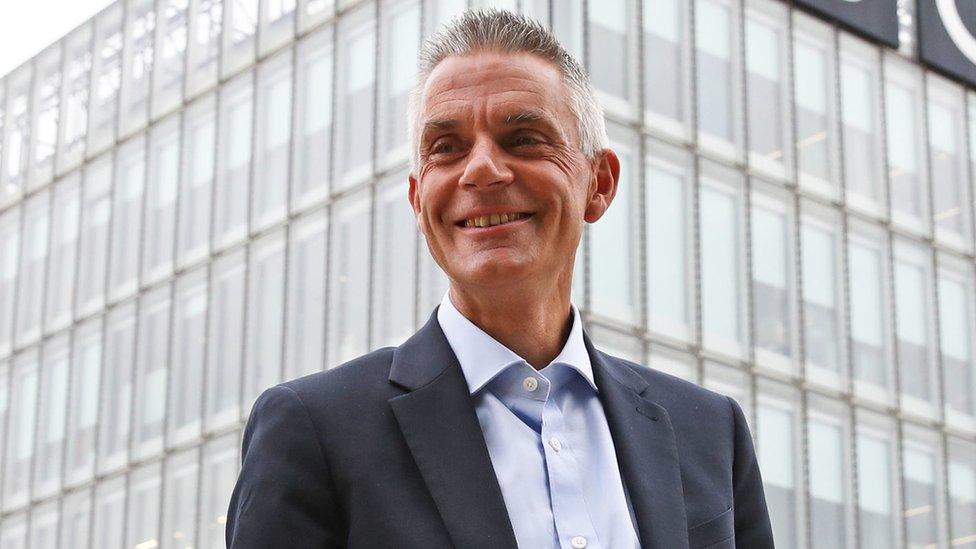
He also acknowleged that the BBC now has an inflation-linked agreement until the end of the current BBC Charter.
In a wide-ranging speech, Davie suggested the BBC would begin looking at ways of making the licence fee more affordable to people on lower incomes post-2028 and how it's applied and enforced.
Questions have previously been raised about whether non-payment of the licence fee is a serious enough issue to merit criminal prosecution.
On 1 April, the cost of a TV licence will rise by £10.50 per year to £169.50. The BBC funds a free licence for any household where someone over 75 also receives the means-tested pension credit.
Davie said the approach to reform needs to be careful and cautious and rejected the idea of the BBC being reduced to a paywalled subscription service, or abandoning the breadth of its programming.
"We should not create another commercial walled garden or a narrow BBC that provides a niche service for the most hardcore users. The very wonder of the BBC is that quality news sits next to genres such as drama and sport thus ensuring widespread usage."
The BBC review will look at the issue of making it fairer for those on low incomes but Davie said the corporation is committed to a "universal fee where everyone has a stake in it."
Davie said next year the broadcaster will "open up our biggest-ever consultation process so the public can inform and drive the debate on the future of the BBC".
The background to the speech is the wider question of where the BBC goes from here.
Traditional viewing of scheduled television is in decline and the competitive landscape with players such as Netflix, Disney, TikTok and YouTube has transformed viewing habits. The size, scope and funding of the BBC is reviewed by the government in a process called charter review and the next charter will have be agreed by the end of 2027.
This is an indication of how the BBC will argue for the continuation of its role and funding.
More streaming content
Expanding on what he meant by the BBC exploring how "progressive" the licence fee is, Davie said: "What I was signalling is as we look at the licence fee going into the future, you know what exactly it covers. It covers live television at the moment, etc, how many people get a free licence?
"All those things we should be open-minded about."
More resources will be moved out of programming on the broadcaster's traditional TV schedules, into content that will streamed.
BBC Three will not commission programmes anymore, with shows commissioned by iPlayer instead as part of a digital first approach.
Last week the government announced an expert panel who will advise it on how the BBC should be funded after the charter.
"Now is the time when we must make choices to rapidly modernise and invest in precious institutions like the BBC, or they will wither," he said.
He added that he was "not defensive about the future" and acknowledged that the "market has changed hugely since the licence fee was introduced".
Davie said he also agrees with a politician who said the "BBC does not have a god-given right to exist", which is why the corporation must "transform again".
However, he recognised the BBC's "proven record of reshaping itself to stay relevant through major industry changes".
He pointed out that the BBC remains the UK's number one media brand, with nine out of 10 adults using its services at least once a week. Globally, it has a weekly audience of nearly 450 million.
Answering questions after his speech, Davie said he wants to fight for universal funding, but the exact mechanism is open to the consultation.
'Ambitious plan'
Davie also set out an "ambitious" plan that he said focused on three roles - "pursue truth with no agenda, back British storytelling and bring people together."
Talking about the future, Davie said the BBC will "more actively utilise commercial partners" and "continue to aggressively grow BBC Studios internationally".
"We aim to double Studios in five years to deliver over £3.2 billion in revenues by 2027/28," he said.
BBC Studios is the commercial arm of the BBC. It most recently made a deal with Disney, which is now a co-producer of Doctor Who.
Last week, the corporation announced plans to carry adverts on its podcasts in the UK for the first time. Ads will appear on commercial platforms, but not BBC Sounds.
What else did Tim Davie say?
Other announcements in the director general's speech include:
"Doubling down" on multi-media brands like BBC Verify for the UK and globally.
Launch two new brands - a new digital destination for deep analysis, long reads and thought-provoking journalism and a BBC investigations brand.
New network of 70 multi-media investigative reporters across local bases in England.
More tailored learning on services like BBC Bitesize, the online study tool.
More than 60% of TV production to be outside London by 2026, and 50% of radio and music production by 2027.
Hire 1,000 apprentices.
Create fully integrated and personalised services that connect up the BBC.
Proactively deploy AI.
Related topics
- Published19 March 2024
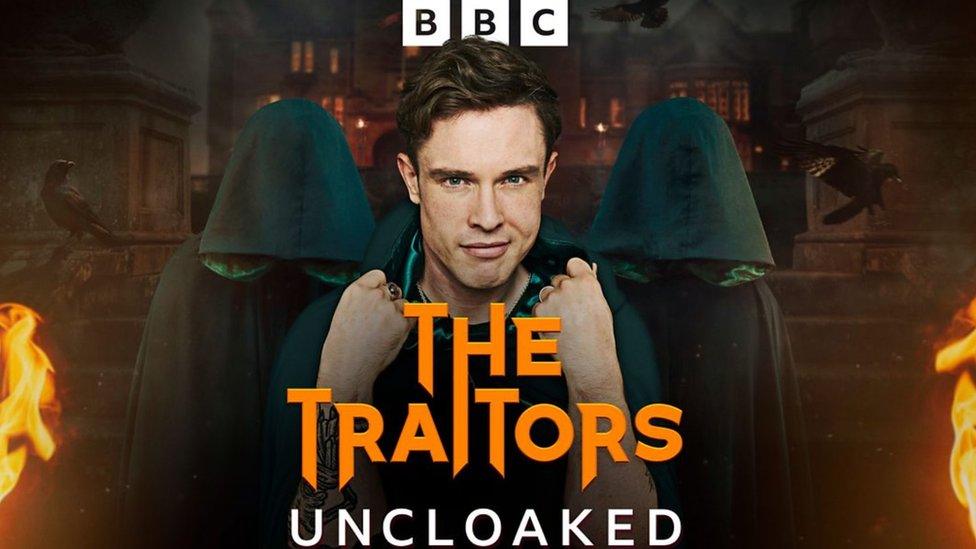
- Published7 December 2023
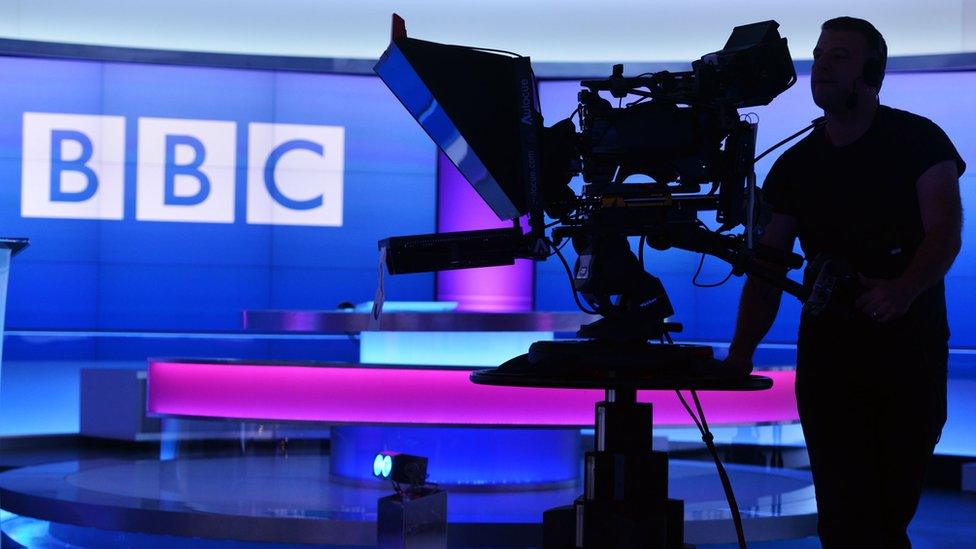
- Published29 November 2023
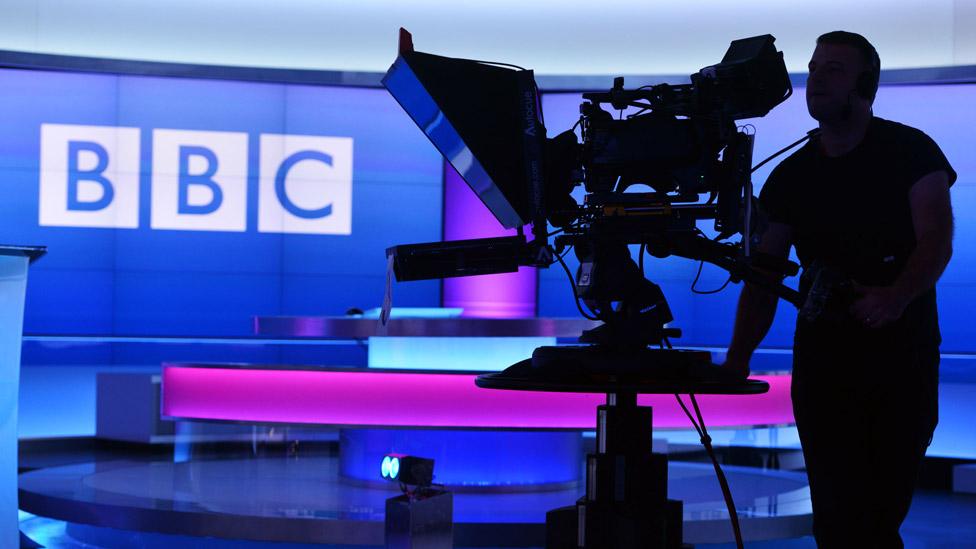
- Published18 January 2022
